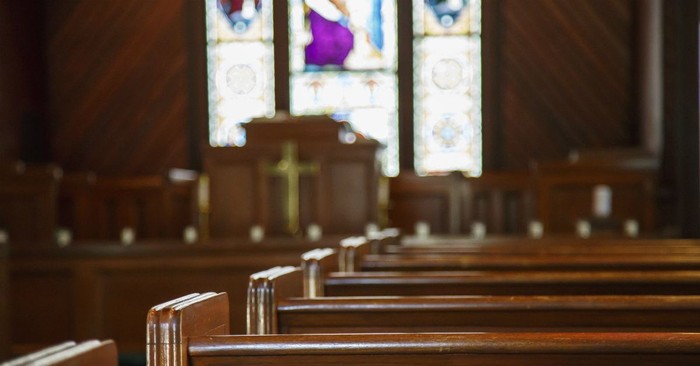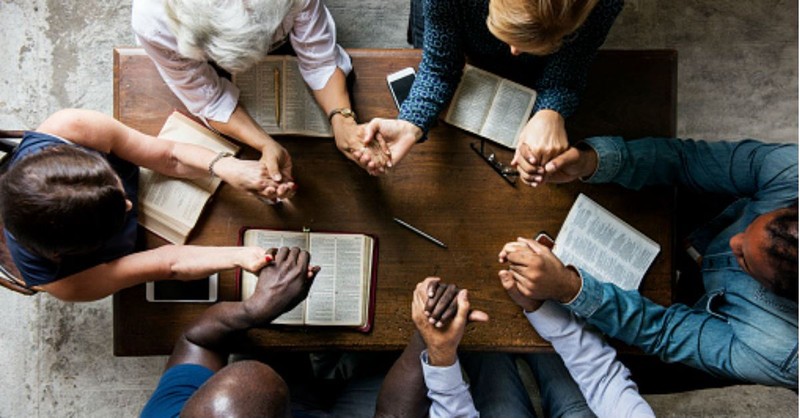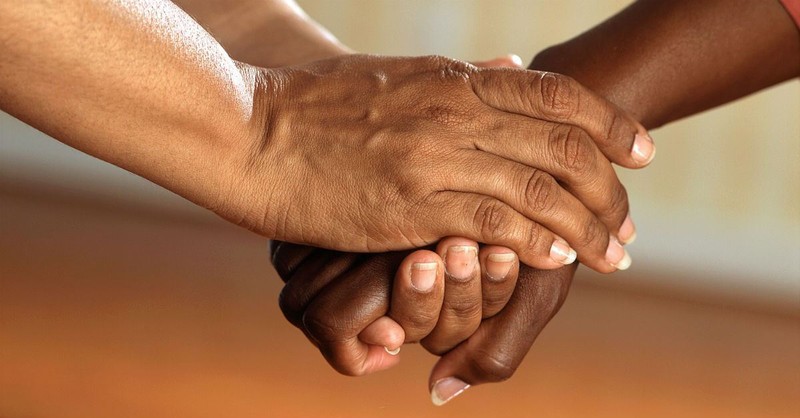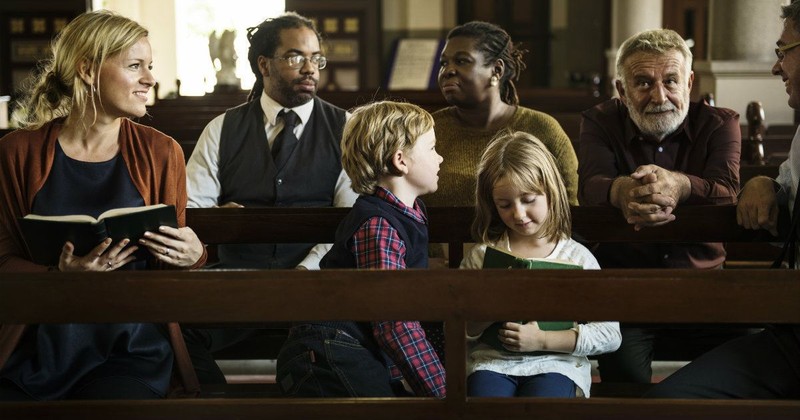
Sometimes I skip church.
I bet you weren’t expecting that. You probably assumed I’d begin with a convicting Bible verse. Or maybe a disheartening statistic about how many millennials don’t attend church anymore.
Instead, I want to start with a dose of honesty: Sometimes I don’t want to go to church.
The church service I attend isn’t even that early, so I can’t use time as an excuse. But there’s a myriad of other excuses for why I skip church. Some days I’m lazy. Occasionally I have a to-do list that’s a mile long and errands to run. The most dangerous excuse that floats around in my head on Sunday mornings though is: “Well, I can just sleep in and listen to the sermon online.”
While listening to sermons or worship music isn’t a bad thing (thank you, internet!), what I’ve found is that if I think I’m “just” missing a sermon when I miss church, I’ve lost the point of church itself.
When I skip church, I miss more than just a sermon. I miss more than just worship music. I miss more than just announcements.
Because church was meant to be more than that.
Photo Credit: Thinkstock/champja

What is Church?
If church isn’t just a building or a sermon or a set of worship music, what is the truest picture of God’s purpose for it? Well, Luke tells us in Acts 2:42-47 (NLT) what a church could and should look like:
All the believers devoted themselves to the apostles’ teaching, and to fellowship, and to sharing in meals (including the Lord’s Supper), and to prayer.
A deep sense of awe came over them all, and the apostles performed many miraculous signs and wonders. And all the believers met together in one place and shared everything they had. They sold their property and possessions and shared the money with those in need. They worshiped together at the Temple each day, met in homes for the Lord’s Supper, and shared their meals with great joy and generosity — all the while praising God and enjoying the goodwill of all the people. And each day the Lord added to their fellowship those who were being saved.
Photo Credit: Thinkstock/Rawpixel

"... people who shared together."
Let’s quickly break down some of the important words and thoughts in these verses. Obviously and practically, Luke gives some descriptions of what churches do: A church takes part in the Lord’s Supper. A church includes teaching, fellowship and prayer.
But the main theme of this passage about the church in Acts is that these were people who shared together. They shared each other’s burdens. They shared meals. They shared resources and talents. The picture that we see of church in Acts is one of deeply rooted community. And community can’t be achieved in isolation.
That’s the thing we lost when sin entered the world: true togetherness with each other and God.
Photo Credit: Pexels

Togetherness: Lost and Restored
Togetherness is actually a need that God wired into each of us. As a millennial, I’m used to hearing about all of the things my generation loves (avocado toast, traveling the world, social media) on a weekly basis.
One of the things that people often fail to mention positively when they talk about millennials is that we love being connected. It looks different for us than other generations — we’re “connected” to thousands of people around the world all day through our phones and apps. That’s a real connection for us, but we also love to get together in person.
Sadly, when sin came into the picture, all of us — every generation — lost true connectedness and togetherness.
Photo Credit: Thinkstock/nortonrsx

"Sin continues to whisper the lie that isolation is better than togetherness."
As soon as Adam and Eve ate the fruit in Genesis 3, the text says “their eyes were opened, and they suddenly felt shame. ...” (NLT). Adam and Eve’s eyes were opened — everything came into sharp, unedited focus. And what they saw was each other’s sin. The shame of that discovery, and of their own sin, made them “cover up” the awful truth. They went into hiding from each other and God.
And human beings have been hiding themselves in various ways ever since.
You see, sin continues to whisper the lie that isolation is better than togetherness; that if people knew who we truly were, they would judge us or run away from our mess; that if we revealed our hearts, even God wouldn’t want to be with us. We’re tempted to keep our struggles and doubts to ourselves. But church is actually God’s remedy for isolation, sin and shame. Because church isn’t a building. Church is a collection of broken people — bound by their identity in Christ, tethered to grace and welcomed to do life with each other. But we’re not just standing next to each other; the beauty of the church is that from many broken lives God creates one beautiful “body” of believers (Romans 12:5).
Photo Credit: Thinkstock/Thinkstock-AH86-armscrossed

Showing Up
Sometimes I reduce church to just a building or a timeslot of an hour and a half on Sundays. When I do, it’s much easier to justify skipping out on church. If I saw church as a healing, relational tool, it’d be much harder for me to stay away. On days I haven’t felt like going to church or a Bible study, but have shown up anyway, God has spoken to the places of my heart that needed to hear his voice most.
So I encourage you, if you’re not attending a church, start by just showing up. God will meet you there.
You might be reading this and bristling because you’ve been made to feel guilt and shame for not connecting with a church. Maybe you grew up with a legalistic view of the church. I’ve been there. In my young adulthood, attending a church service was a box I’d check off my “Stuff Jenn Should Do to Be a Good Christian” list.
Photo Credit: Thinkstock

"...the church is big and beautiful and important and, yes, sometimes messy."
I found that it was easier to make church a task than to let God fix my brokenness through community with others. In order to be healed, you have to admit that you’re sick; it’s often easier to pretend we have it all together than admit we need the Healer.
I’ve found a C.S. Lewis quote from “Mere Christianity” applicable: “ … Usually it is those who know Him that bring Him to others. That is why the Church, the whole body of Christians showing Him to one another, is so important.”
I’m not trying guilt you into finding or attending church; instead, I hope you’ll be encouraged that the church is big and beautiful and important and, yes, sometimes messy. God’s invited us to be radically changed through our relationships in church.
Photo Credit: Thinkstock/digitalskillet

What Happens When People Become The Church
Something pretty cool happens when church is about people — lives and relationships are radically changed. While it’s important to attend a church service, it’s also important to connect beyond finding a seat in a sanctuary.
Most churches have Bible studies. They may also be called small groups, community groups or something else entirely. Small groups are perfect opportunities to experience that radical change that comes through relationships. Sometimes God allows us to build community with those who’ve gone through similar life experiences. And sometimes God shapes us by bringing us into community with people who look, think and experience life differently than us.
Photo Credit: Thinkstock/Khosrork

Take me, for instance:
After college graduation, I was looking for a Bible study to join. I’d recently started attending a new church, and even though I’d been volunteering in children’s ministry, my mom encouraged me to get involved with a group of adults too. (Yes, mom. You were right.) I’d put off connecting with adults, because I found children to be less intimidating. Adults judge you sometimes; children rarely do.
I signed up for a group of post-college young adults who love being creative (painting, writing, videography, etc.), because I’m a writer, and I figured that a group of like-minded believers would be a good place to start my small group journey.
Before the first meeting, I prayed that a lot of women would sign up to attend the group — I’m more comfortable being vulnerable with my spiritual life around women than men. The joke was on me though: For the first few weeks of this Bible study, I was the only girl! I seriously contemplated leaving the group after the first meeting, but something within my heart tugged at me and told me that I could learn from guys too.
And I did.
Photo Credit: Thinkstock/digitalskillet

"...stepping outside of my comfort zone wasn’t a bad thing."
Even though more women joined the group after our initial few weeks, I consider the time I spent with those guys to be so valuable and formative. I was able to better understand their hearts and doubts, and to share my burdens with them. There was something valuable I gained in realizing that stepping outside of my comfort zone wasn’t a bad thing.
A few years later, I joined an all-women’s Bible study (welcome back to my comfort zone!). I’ll never forget my first meeting: The woman who led our study was pregnant and unmarried. There were valuable lessons I learned from that woman — most importantly, humility and grace in the face of our sins and mistakes. As someone who grew up with a legalistic viewpoint, I learned from my leader that God can use us no matter what we have done. We can’t be perfect, but we surely can be redeemed.
The love and gratitude that she expressed to God for his continued faithfulness and goodness was inspiring to me in ways I never expected. Our small little community of women found hope and true grace in Christ during those months.
Photo Credit: Thinkstock/enrouteksm

"We don’t hide from each other..."
Over the years I’ve attended a handful of other small groups: I loved each one and learned a lot. I’ve been with my current group for a few years now.
My Bible study isn’t a stranger to the hard stuff. We’ve walked with each other through depression and anxiety, family struggles and periods of doubt. We’re honest about the things in our Christian lives that are difficult. We don’t hide from each other, and when we’re vulnerable and honest, one of us will respond to the one who shared, saying: “Thank you for sharing with us.”
Recently, one of our members, Thomas, made an observation about our group. He noted that he’s been a part of Bible studies over the years, but none of them had the kind of vulnerability and transparency that we have.
Authenticity and vulnerability aren’t easy to cultivate. Trust me, it takes time. But it is well worth the investment.
Whew. Okay, this sounds pretty heavy! While church is meant for being vulnerable, church is also meant for celebration. My group has also been there for each other in the fun stuff. We host board game nights. We eat together. We attend each other’s work events and support one another in our hobbies. We even help each other move in the middle of Florida summer! We laugh to the point of tears and show up for each other always.
We’re all completely different and yet bonded together by our identities in Christ.
Photo Credit: Thinkstock/monkeybusinessimages

Don’t Be Afraid to Date
You might read through my experiences and think, “Great, Jenn. But I don’t know if I could find the kind of community you have. What if meeting the people in my group is awkward? What if I don’t connect with anyone?”
God didn’t design church to be scary, but if you’ve never engaged with it, or if it’s been a while since you have, it’s likely you’ll feel a little uncomfortable at first. That’s normal and okay.
A “dating period” is the best analogy that I can use for that first experience connecting with a church community. The beginning of a dating relationship can be awkward and uncomfortable until you get to know each other well.
Maybe you’ve felt the way I have sometimes — that you have to show up to church with your best side forward: best attitude, best attire and best smile. If you’ve ever experienced that in your life, I’m sorry. Let’s be honest: We’re all flawed and sinful. We mess up. Even Christians.
I encourage you to still try. I know it’s scary to put yourself out there. Start small, though: After you’ve found a church you like, see if it has a low-commitment social event where you can mingle with people. Or serve at an outreach event and get acquainted with the church’s mission and vision. Talk to people in your classes, workplace or neighborhood to see what churches and Bible studies they’d recommend. Grab a close friend and try a new group together!
Photo Credit: Thinkstock/MangoStar_Studio

"...God can change your life through church."
Don’t be afraid if your first attempt doesn’t work. Try again! It might take a little bit of searching to find the best fit for you, but it’s worth it.
True church is the place where honesty and love happens. It’s where we come face-to-face with other people and admit that there are things about the Christian life that are hard. It’s where we encounter brokenness — in each other and ourselves — and step closer instead of stepping away. It’s where we celebrate the important and silly things together. It’s where we learn from God’s Word, serve him and worship together.
I hope you find that place. I really do. Because I think God can change your life through church.
He sure changed mine.
This article was originally published on Wycliffe.org. Used with permission.
Jennifer Stasak is an editor and writer in the Marketing department of Wycliffe USA in Orlando, Florida. Ever since she can remember, she's loved stories and is thrilled that she gets the chance to tell them for a living. When she's not writing, Jennifer is most likely found near a cup of coffee, volunteering in her church or running races.
Photo Credit: Thinkstock/monkeybusinessimages
Originally published Wednesday, 05 December 2018.








